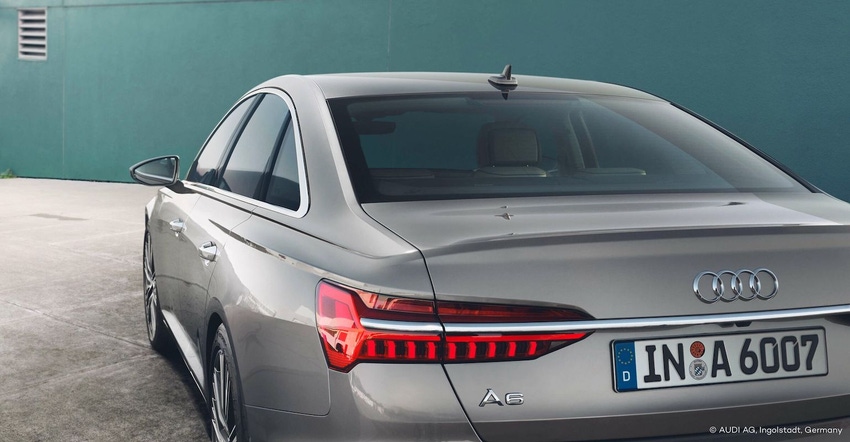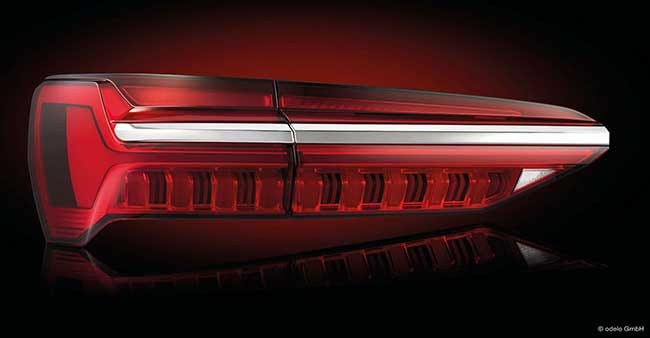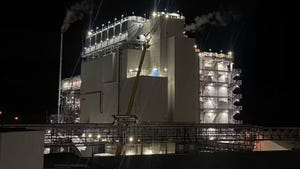- Automotive & Mobility
- Materials
- Injection Molding
- End Markets
- Extrusion: Film & Sheet
- Building & Construction
Röhm in Expansion Mode as Acrylic Revs Up in Mobility Applications
New capacity added to facility in Worms, Germany, with more to come in Shanghai. Auto taillights are among growth applications.
July 20, 2022

In June of this year, Röhm successfully commissioned the plant expansion for impact-modified Plexiglas molding compounds in Worms, Germany, which are used primarily in the automotive, household, and construction sectors. The expansion will enable the company to meet high global demand for its branded polymethyl methacrylate (PMMA). Additional expansion of plant capacity is already in the planning phase.
Further, a groundbreaking ceremony at the company’s Shanghai site in China this month marked the start of construction work for the expansion of its Asian Plexiglas molding compounds production plant. The expanded plant is set to begin operations by the second quarter of 2023.
“The expansion of capacities in China is an important further step toward implementing our global growth strategy for PMMA molding compounds,” said COO Hans-Peter Hauck. Röhm began the systematic expansion of its special molding compounds three years ago with an additional compounding line in the United States. These investments are in response to growing global demand from the automotive and lighting industries, as well as in household applications and in extruded sheet.
One recent automotive application highlighted by Röhm is a taillight molded by odelo, a maker of vehicle lighting components, for the Audi A6 in conjunction with an innovative laser welding process.
The two-part taillight is assembled from two bonded, graduated components. An arrow-shaped signature light guide reinforces the dynamic form. This light guide is made from light-scattering Plexiglas Satinice, which provides homogeneous light diffusion without any hot spots. The cover is manufactured from signal red Plexiglas. Branson laser welding allows the complex and angled components to be joined with minimal joining webs. The housing made from ABS plastic is also welded.
|
Branson's simulataneous laser welding process allows complex and angled components to be joined with minimal joining webs. The Plexiglas cover is bonded to the housing without any visible seams. This extends the creative scope and provides consistent illumination. |
There are various ways to join components. The vibration welding process with infrared preheating has previously been employed but it has the disadvantage that relative movements of the components can result in uneven fusing and fitting tolerances. As a result, welding seams can mar the look of the finished product.
Branson’s simultaneous laser welding process, introduced in 2016, directly joins the outer edges of the components via laser beams without any vibrating relative movement. Joining the external edges of the component by laser radiation allows the interior design of the combination rear light to be connected directly to the weld seam. These weld connections provide considerable visual and mechanical quality.
During the development phase, odelo used optical simulations to determine how a homogeneous transfer of laser output could be achieved while avoiding localized overheating or non-welded spots. This also requires maximum precision in the injection molding of individual taillight components to ensure that the parts are highly accurate at the joining zone.
“The taillights of the A6 are characterized primarily by their joining technology, combined with a functional glass edge design and an angled component gradation. This innovative combination allows a particularly high degree of design freedom and allows the end customer a continuous light image independent of the viewing angle,” said Muhammet Yildiz, CEO of the odelo Group.
About the Author(s)
You May Also Like





